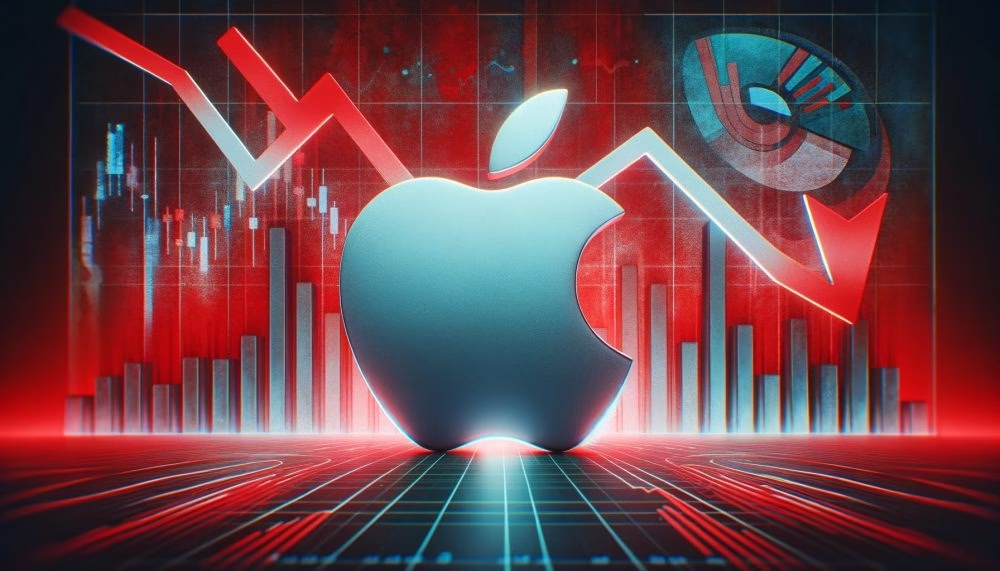The recently launched iPhone 16 series may not have wowed the world with groundbreaking innovations, but its subtle refinements and the introduction of Apple Intelligence, the company’s advanced AI platform, are setting the stage for a transformative future. While initial excitement has been tempered, Apple’s strategic focus on AI and its robust Services division could drive significant growth, with analysts forecasting a path to a $4 trillion market capitalization.
iPhone 16: Refinements Over Revolution
Apple’s decision to prioritize user experience over radical design changes with the iPhone 16 series has been met with mixed reactions. Unlike previous iterations, which introduced bold new features, the iPhone 16 focuses on addressing user feedback and refining existing technologies.
While these improvements enhance usability, they failed to generate the usual hype associated with a new iPhone release. However, the spotlight is now shifting to Apple Intelligence, which has the potential to redefine the iPhone ecosystem and drive future adoption.
Apple Intelligence: A Game-Changer in the Making
Apple Intelligence, the company’s generative AI platform, is poised to be a pivotal feature for future iPhones. Despite its limited rollout in the iPhone 16 series, analysts believe it holds the key to unlocking a new era of smartphone functionality. Morgan Stanley’s Erik Woodring highlights that Apple Intelligence could significantly boost iPhone sales once its features are fully integrated and accessible.
The platform is expected to introduce AI-driven enhancements to productivity, personalization, and overall user experience. However, integration challenges have delayed the release of key features, with some advancements potentially postponed until iOS 19 in 2026. This measured rollout underscores Apple’s commitment to ensuring a seamless and reliable user experience.
Stock Surge Amid Lukewarm Demand
Despite the subdued reception of the iPhone 16 series, Apple’s stock has surged by 16% since November, adding an impressive $500 billion to its market value. According to ITHome, this growth reflects investor optimism surrounding Apple’s AI ambitions and the strength of its diversified business model.
The iPhone remains a cornerstone of Apple’s revenue, but the company’s strategic focus on AI and services positions it well to weather market challenges. Analysts predict that once Apple Intelligence achieves full-scale implementation, it could trigger an iPhone supercycle, reigniting consumer enthusiasm and boosting sales.
Navigating Challenges in China
China, the world’s largest smartphone market, presents a unique set of challenges for Apple. Regulatory hurdles have slowed the adoption of generative AI features, limiting the immediate impact of Apple Intelligence in the region. Reports indicate that Apple is collaborating with local tech giants Tencent and ByteDance to overcome these restrictions and expand its AI capabilities.
Success in China is crucial, as the market contributes significantly to Apple’s annual iPhone revenue. Overcoming these challenges could unlock substantial growth opportunities, further solidifying Apple’s position as a global tech leader.
The Strength of Apple’s Services Division
While the iPhone business faces hurdles, Apple’s Services division continues to act as a reliable financial pillar. With an estimated revenue of $100 billion by 2025, Services is projected to account for 25% of Apple’s total revenue. Analysts from Wedbush forecast the division’s valuation to reach $1.5 trillion to $1.6 trillion by the end of 2024, bolstering Apple’s overall market value.
Key offerings such as iCloud, Apple Music, and App Store subscriptions provide steady income, insulating Apple from fluctuations in hardware demand. This robust growth underscores the company’s ability to diversify its revenue streams and maintain financial stability.

Looking Ahead: The Path to $4 Trillion
Apple’s journey toward a $4 trillion valuation hinges on its ability to navigate current challenges and capitalize on emerging opportunities. The slow but steady rollout of Apple Intelligence, coupled with the resilience of its Services division, positions the company for sustained growth.
While it remains uncertain whether the iPhone 16 series will trigger an immediate surge in sales, the potential for a transformative AI-driven ecosystem is undeniable. As generative AI becomes more accessible and refined, Apple could see renewed enthusiasm for its devices, ultimately solidifying its place at the forefront of the tech industry.
Apple’s strategy of balancing refinement with innovation may not deliver instant gratification, but it sets the stage for long-term success. With a strong focus on AI, a growing Services division, and strategic market maneuvers, the company is well-equipped to continue its ascent, proving that even subtle changes can lead to monumental outcomes.



